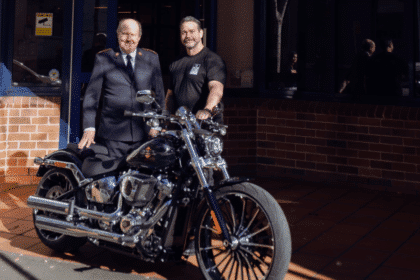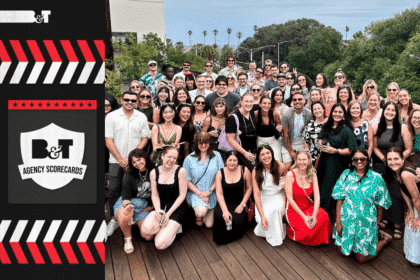It’s fair to say the COVID-19 outbreak has changed the way we work. But will it change our approach to diversity in inclusion? As part of our Changing The Ratio series, B&T sat down with Adrenalin senior marketing manager Millie Poutama [feature image] to discuss what best practice looks like in a post-COVID world.
B&T: How have you seen COVID-19 accentuate pre-existing issues in the media and marketing sector when it comes to diversity and inclusion? Do you believe some people have been more affected than others?
Millie Poutama: Over recent years, D&I initiatives have been high on the agenda for many Australian media and marketing organisations which has been fantastic. The recent health crises, however, has forced many businesses to move into survival mode and re-prioritise many of their programs, including D&I. The onset of COVID-19 has served to exacerbate many of the existing inequalities, not just in media and marketing, but across all industries. Women, for example, have suffered the biggest pay cuts in 11 of the 19 sectors of the Australian economy. This disproportion has often been shouldered with the increase in caring responsibilities expected of women, especially whilst children were not at school.
There has also been a reported increase in racial discrimination too. One in four people who lodged racial discrimination complaints in the past two months say they were targeted due to COVID-19, according to the Australian Human Rights Commission. It is also important to mention that COVID-19 has elevated disparities and long-standing inequalities experienced by many disadvantaged groups across our society, including the First Nations people.
So, it will be really important for organisations, especially those in media and marketing who have access to platforms and eyeballs, to continue to ensure D&I initiatives remain a high priority.
B&T: Moving forward, how is Adrenalin preparing to ensure its process remains inclusive?
MP: We’re very lucky at Adrenalin in that we have historically always had a very diverse workforce (which currently includes 16 nationalities) and this plays an integral part in our high performance. Over the last 12-months, we have almost achieved our “equal gender split” goal, with 44 per cent of the agency staff female and 56 per cent male. 74 per cent of our creative team are female and 48 per cent of women hold senior and leadership roles.
To ensure that we remain inclusive and keep ourselves accountable we will continue to look for opportunities to be involved in industry-led initiatives such as the Changing the Ratio event and the annual Agency Circle diversity survey that seeks to track and improve diversity standards industry-wide.
We also ensure a continued commitment to D&I best-practices, with a yearly HR audit undertaken to identify gaps in compliance or industry standards, which we then work to prioritise addressing.
B&T: Speaking more broadly, what are some industry-wide initiatives that could be put in place to minimise the re-emergence of some of these issues?
MP: It’s been great to see such a proactive response at both the State and Federal levels. With the latter, the Child Care Relief package and JobKeeper program have given some much-needed buoyancy to many employees and businesses, especially in those industries which have been severely impacted. What’s starting to emerge however is that a “one-size-fits-all” response may not be ideal, especially when looking at disadvantaged or minority and marginalised groups who were already struggling with inequality issues pre-COVID. Some initiatives to better reflect flexibility needs around D&I might include extending Child Care Relief beyond June and JobKeeper beyond September for dual-working families.
B&T: Do you foresee the hiring process being impacted by COVID-19?
MP: The inevitable blow-out in unemployment rates is reflective of the conservative approach most businesses have adopted (and will continue to adopt) to hiring over the next 12-months. What’s going to be important however is that when new hires are made, employers continue to recruit with a view to build a diverse and inclusive workforce and provide training and development programs to support this. At Adrenalin we have a robust training and development program investment which sees about three per cent of salary costs invested in internal upskilling each year. It will also be critical for employers to ensure the work from home flexibility which has been mandated as a result of COVID continues to be offered to staff (including new hires) to accommodate ongoing disruptions with transport and childcare as well as other socio-economic factors that have been emphasised throughout the pandemic.
Furthermore there could also be disruptions with talent who would previously have been employed via a specialist working visa. There have been long delays in the processing of visa’s as well as a stop on people entering the country which looks set to continue.
B&T: As a business that specialises in creating digital experiences, how important is it to ensure you have diverse teams working on your projects?
MP: Experience has proven to us that diversity is key to creativity and helps foster a culture of excellence – so it is critical to ensure that you have diverse teams for projects. Diversity brings with it breadth of information and we are all influenced by the diverse, personal experiences of those around us, in both a positive and also a negative way. Having a diverse team, in turn, means a more diverse set of life experiences and perspectives which can help us better understand our clients and end-users for the platforms and products we build.
B&T: Specific to digital, do you believe there is a correlation between effective solutions and diversity?
MP: Definitely, if you rely on feedback that only comes from a single person or a few individuals with the same life experiences then your feedback pool will be small. You could be creating the ideal system for a homogeneous team, but not for the client or their diverse audience of end-users.
One example where we look to leverage diverse audiences to deliver more innovative outcomes is when we conduct user experience testing on digital products or platforms. We always aim to recruit testing participants from a “real-world” sample and conduct our research groups with a mixture of people of different ages, genders, cultures and sexuality. We recently ran a large usability testing project for a client in the Mental Health sector and we had really great representation from many marginalised groups – the outcome was a much more insightful and meaningful level of feedback which led to a better digital product being delivered.
B&T: All companies have a specific set of values. For Adrenalin, have you found these company values to be particularly pertinent and valuable amid the trying conditions COVID-19 has brought with it?
MP: At Adrenalin we understand that we are only as good as the people we employ, that’s why we invest in, train and develop our team to nurture a culture which rewards excellence, innovation and creativity.
One of our core values at Adrenalin is transparency, we believe in having an open information policy when it comes to our employees. Transparency for us means a mutual sharing of information, we have conducted regular surveys with our staff to assess how they are feeling during the duration of the COVID-19 crisis.
As well as being transparent we also believe in being proactive and listening to our staff. We’ve run fortnightly pulse surveys to gauge the temperament and wellbeing of our staff. We have introduced initiatives to encourage virtual collaboration including weekly virtual social events, trivia, team shout-outs and a bring your pet to the (WFH) office day. Perhaps, more importantly, there has been a deep focus on mental health of our staff with the introduction of a mental health support program, along with weekly yoga and meditation sessions run via Zoom.
B&T: You mentioned the use of language around ‘rebound and recovery’ when talking with clients at the present moment. Can you explain why you believe this is important?
MP: We believe that now, in a recovering market, is the time for brands to position for growth and opportunity. Times of uncertainty often forces accelerated change within organisations, as brands pivot to respond to disrupted operational and revenue channels, whilst trying desperately to stay close and remain relevant to their customers. Declining revenue streams lead to increased caution which naturally drives many brands into a hibernation zone. This is exactly where you don’t want your brand to be in a recovering market. Those brands that emerge stronger and more dominant from this global pandemic will be the ones who take advantage of a recovering market and position for growth. The importance of being agile with your Digital Marketing activities, across all channels, is critical. Equally critical, will be the need to hold-steady to the importance of diversity and inclusion within the workplace.
Special thanks to CHE Proximity and Adrenalin Media for making this content series possible.








